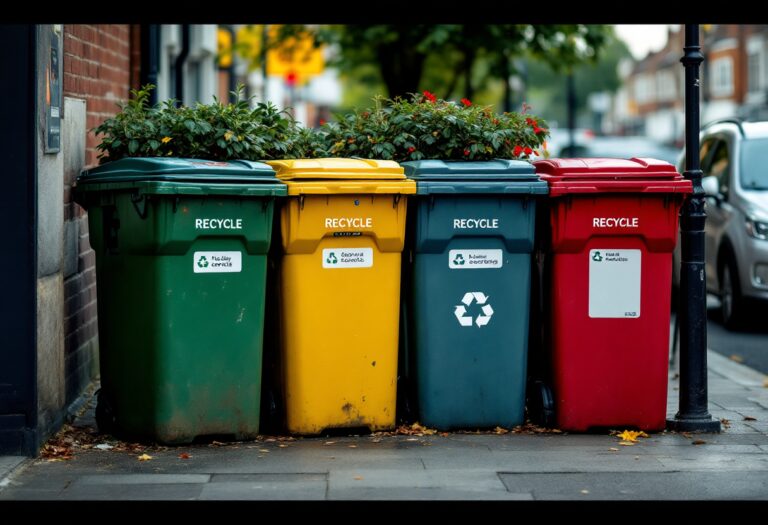England's new waste management policy aims to streamline recycling efforts across the country.

Major changes in rubbish collection: Four-bin system for households
Households across England are poised for a significant transformation in waste management with the introduction of a four-bin system for rubbish collection. This initiative, which could begin as early as March 2025, aims to address the longstanding criticisms of the existing waste collection methods, which have been described as “muddled and confusing” by Labour officials.
Streamlining waste collection
The previous Conservative policy proposed a complex system involving up to seven bins for various types of waste. However, the government has revised this approach, now mandating that most homes and workplaces utilize four containers, which can be bags, bins, or stackable boxes.
This change is part of the government’s commitment to create a more uniform recycling policy across England, eliminating the so-called ‘postcode lottery’ where different councils have varying recycling rules.
According to the policy document titled ‘Simpler Recycling in England: policy update’, this four-bin system is the maximum requirement and is not expected to expand in the future. Local councils will retain the flexibility to tailor their waste collection strategies to meet specific community needs, ensuring a sensible and pragmatic approach to waste management.
Improving recycling rates
One of the key objectives of this new initiative is to rejuvenate the stagnating recycling rates in England, which have remained around 44% since 2015. The updated policy also stipulates that ‘bad-smelling food waste’ must be collected from all households at least once a week, a move aimed at encouraging better recycling practices.
By March 31, 2025, local authorities will have more leeway in handling food and garden waste, with exemptions for co-collection. The government assures that mixing these materials will not hinder their recyclability or compostability, as they can still be processed effectively through in-vessel composting.
Separation of recyclables
To further enhance recycling efforts, the policy recommends that paper and cardboard be collected separately from other dry recyclables to prevent contamination. Interestingly, 121 local authorities in England already implement separate collections for paper and card, showcasing a growing trend towards more organized recycling practices.
Other dry recyclables, such as plastics, metals, and glass, may be collected together, which aims to increase recycling volumes despite a slight risk of contamination. Recent figures from WRAP indicate that 95 local councils are already practicing the co-collection of these materials, highlighting a shift towards more efficient waste management.
The ‘Simpler Recycling’ initiative is designed to enable consistent and streamlined collections from all households, businesses, and relevant non-domestic premises, such as schools and hospitals. By allowing local authorities to co-collect some waste streams by default, the need for multiple separate collections will be eliminated, simplifying the recycling process for residents.




